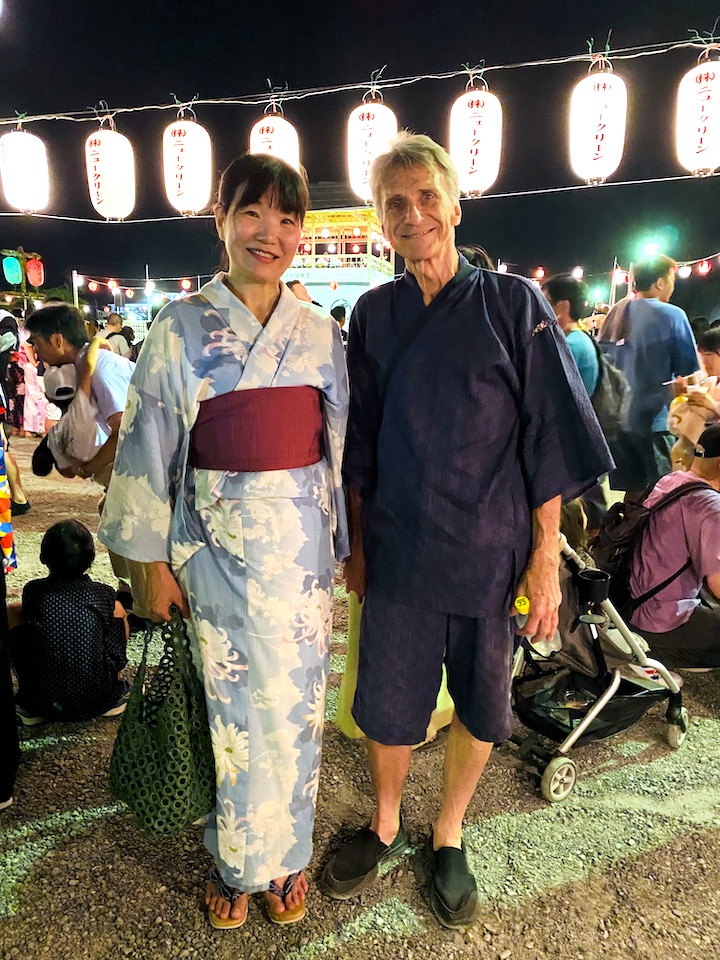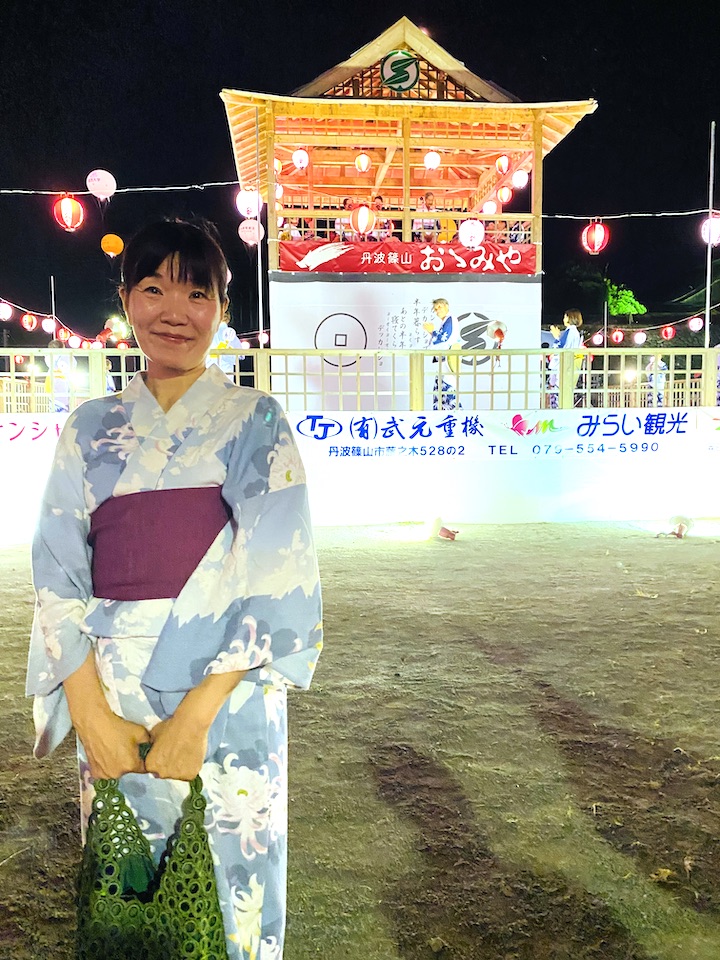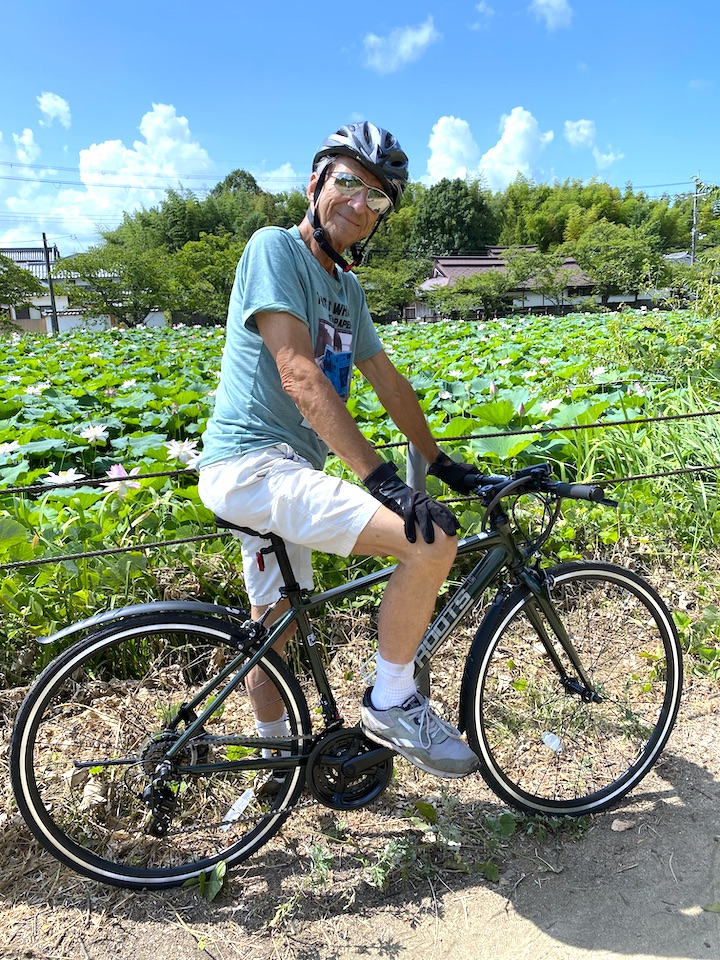This year, Masumi and I pulled out all of the stops for the annual Dekansho Festival. We wore traditional clothing, me a jinbei and her a yukata. Jinbei is summer wear for men, and a yukata is the summer version of a kimono, since a regular kimono would be way too hot this time of year.
The festival was especially groundbreaking for me, since I learned the Dekansho dance! Both evenings Masumi and I danced with the crowd, circling the stage countless times. The music, of course, is performed live. It’s a great feeling dancing with thousands of smiling people, folks of all ages, heights, weights, some shy, some outgoing. What a total hoot!
Which makes me realize why this festival is so special, why it’s becoming more and more popular each year — this year it was often shoulder-to-shoulder, particularly by the food and souvenir booths — with visitors coming from all around to experience this unique celebration.
Dekansho is not just a “spectator festival”. It’s a “participant festival”. It’s like a big party!
If you watched the video, you heard the music and got a quick glimpse of the dancing. Frankly, it’s impossible without using an airborne drone to capture how many people were doing the Dekansho dance. Half of the festival grounds was covered with dancers. Some alone, some in pairs, many in groups of ten to twenty.
You might have also noticed a celebrity appearance by the Japanese mascot/destroyer/mutant, Godzilla. And while we didn’t get a photo of him, Spiderman was there too! The kids loved it.
Yes, the kids. And the old folks (like me). And swarms of teens. And everyone in between.
This is how life should be. A whole community coming together, laughing, smiling, dancing, singing, eating, drinking. Joined by people from surrounding communities, who double or triple the joy of the occasion.
By the way, I thought Masumi looked great! It’s rare I get to see her dressed in traditional Japanese garb.
We were there both days. Despite there being how many attendees? — 10,000? 20,000? — we saw quite a number of folks we know. We ran into two of Masumi’s daughters, their closest friend and her new husband. We saw neighbors from our village. We saw Yuka and Dan. They’re married. Yuka is Japanese, Dan is British. I met Yuka as her English teacher back in 2008. We saw Bodi, a friend from Pokhara, Nepal, who manages a local Nepalese restaurant.
My only regret is that Dekansho only lasts two days. Like I said, isn’t this what life should be like all of the time? Then again, I suppose it wouldn’t be so special if we had it every week or every month.
I guess we just need to figure out how to make every day special, each in its own unique way.
I think I’ll start each day by dancing.
Or maybe I’ll sing as I ride my new bike through the rice and soybean fields . . .
. . . songs about peace . . . friendship . . . kindness . . . celebration . . . love.


